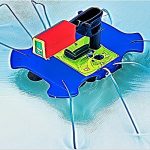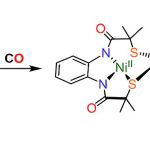The hidden dangers of nail salon chemicals people should know
That distinctive nail salon smell—sharp, sweet, and a bit tingly in your nose—is actually air pollution.
This air pollution can cause various health problems for...
Scientists develop self-powered robots to monitor water environments
Researchers at Binghamton University, State University of New York, have created a self-powered "bug" that can skim across water to collect environmental data.
This innovation...
Coyotes in the city: What you need to know
Atlanta, home to over 6 million people, a vibrant film and music scene, and now, a growing population of coyotes.
Thanks to new video footage...
Scientists discover new type of wood that could help fight climate change
Researchers have discovered a completely new type of wood that could significantly improve how we capture and store carbon.
This breakthrough was made while studying...
Think glass bottles are better for the planet? Think again!
Is a glass bottle of orange juice better for the planet than a plastic one?
You might be surprised. A study by food scientists at...
How Saharan dust impacts hurricane rainfall: New study reveals surprising connections
New research has uncovered a surprising link between giant plumes of dust from the Sahara Desert and the rainfall from hurricanes.
These dust plumes, which...
Pesticides used in agriculture can cause cancer just like smoking
In today's agriculture, pesticides are crucial for achieving high crop yields and ensuring food security.
However, these chemicals can harm plant and animal life and...
Unique samples reveal history of Antarctic ice sheet
Global warming is causing the Antarctic ice sheets to melt faster than previously thought, especially in West Antarctica.
An international research team led by the...
Smart soil: A new way to water and feed plants efficiently
Researchers at The University of Texas at Austin have developed a new type of soil that can capture water from the air to keep...
Scientists recreate enzyme to capture carbon from the atmosphere
Scientists from King's College London and Imperial College London have made an exciting breakthrough in the fight against climate change.
They have successfully recreated the...










